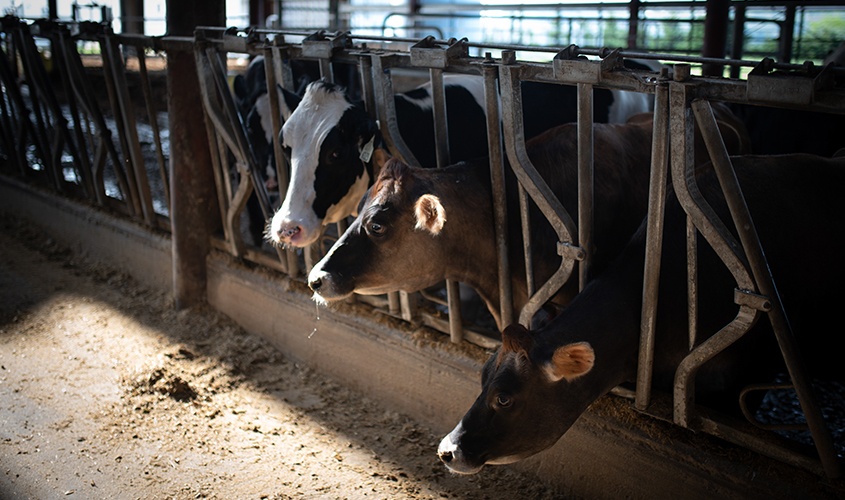SGU faculty collaborate on groundbreaking cattle vaccine research

A group of scientists from St. George’s University, Kansas State University, and the Animal Diseases Research Unit of the U.S. Department of Agriculture have made a groundbreaking development in vaccine research with a new study conducted on cattle.
Bovine Anaplasmosis, a tick-borne disease, wreaks havoc on the cattle industry every year. It’s historically been treated with antibiotics, but in a new study published in PLOS Pathogens, another solution is presented.
“It’s a very significant pathogen. It causes weight loss, anemia, and even death in cattle which results in billions of economic losses in the cattle industry worldwide, whether it’s beef or dairy,” said Dr. Melinda Wilkerson, professor and chair of pathobiology in the School of Veterinary Medicine at SGU. “This group of researchers basically knocked out a gene that was important for growth so that they could immunize cattle.”
The technique is the first of its kind and has potential implications for treating infections in other animals like dogs, or even humans, who are also impacted by tick-borne diseases.
“The research found that when the cattle were exposed to the field organism through the vaccine, it was able to protect the animals from future exposure,” added Dr. Wilkerson. “That is very significant because any vaccines out now are ineffective. This is the start of a new method.”
“This research paves the way for vaccine development for tick-borne diseases, specifically bovine anaplasmosis. The impact will be incredibly significant, and our team at SGU is proud to have been a part of it.”
The first author of the research, Dr. Paidashe Hove, is supported by SGU’s School of Veterinary Medicine through the Postdoctoral Scholars Program (PSP). The program provides financial support and resources to researchers and has resulted in a strong collaboration between SGU and universities like Kansas State.
“The PSP has funded two postdocs in the KSU-SGU collaboration,” said Dr. Roman Ganta, university distinguished professor of KSU’s Department of Diagnostic Medicine and Pathobiology, a visiting professor at SGU, and senior investigator of this research. “The SGU-funded PSP scientists published three high-quality peer-reviewed scientific publications, while additional manuscripts are in progress.”
While Dr. Hove and Dr. Ganta were the primary and senior investigators of the project, SGU SVM faculty including Dr. Wilkerson; Dr. Bhumika Sharma, assistant professor of pathobiology; and Dr. Andy Alhassan, associate professor of pathobiology—and a previous PSP candidate who worked alongside Dr. Ganta—have established longstanding relationships that contributed to the success of advancing several collaborative research projects, primarily focused on tick-borne diseases.
“This is a clear demonstration that the PSP is an ideal means of expanding the scope of research at SGU,” said Dr. Wilkerson. “Such collaborations also provide visibility to SGU SVM as an institution that is actively engaged in collaborative research on a global scale.”
As for what’s next for the research conducted by Dr. Hove, Dr. Ganta, and the team, Dr. Wilkerson says this is just the beginning.
“This research paves the way for vaccine development for tick-borne diseases, specifically bovine anaplasmosis. The impact will be incredibly significant, and our team at SGU is proud to have been a part of it,” Dr. Wilkerson said.
—Sarah Stoss

